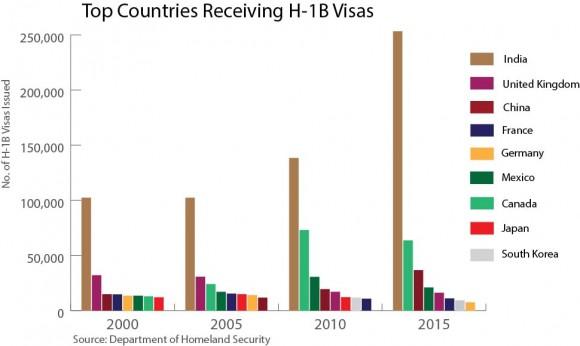As of April 3, premium processing of H-1B visa petitions will be temporarily suspended. U.S. Citizen and Immigration Services (USCIS) said on March 3 that the pause will help reduce overall H-1B processing times.
USCIS said a “significant surge in premium processing requests over the past few years” and the high volume of petitions has rendered the agency unable to process long-standing petitions.
USCIS charges a $1,225 premium processing fee per application and guarantees a response within 15 days. Standard applications take between three and six months for a response.
The visa allows companies to employ foreign workers in specialty occupations that require the theoretical or practical application of “highly specialized knowledge, including but not limited to scientists, engineers, or computer programmers.”
Silicon Valley companies are the heaviest users of the H-1B visa, bringing in workers largely from India. In 2015, almost half of the 537,450 H-1B visas issued went to Indians. After India, the countries that benefit most are Canada, China, Mexico, the United Kingdom, and France.





